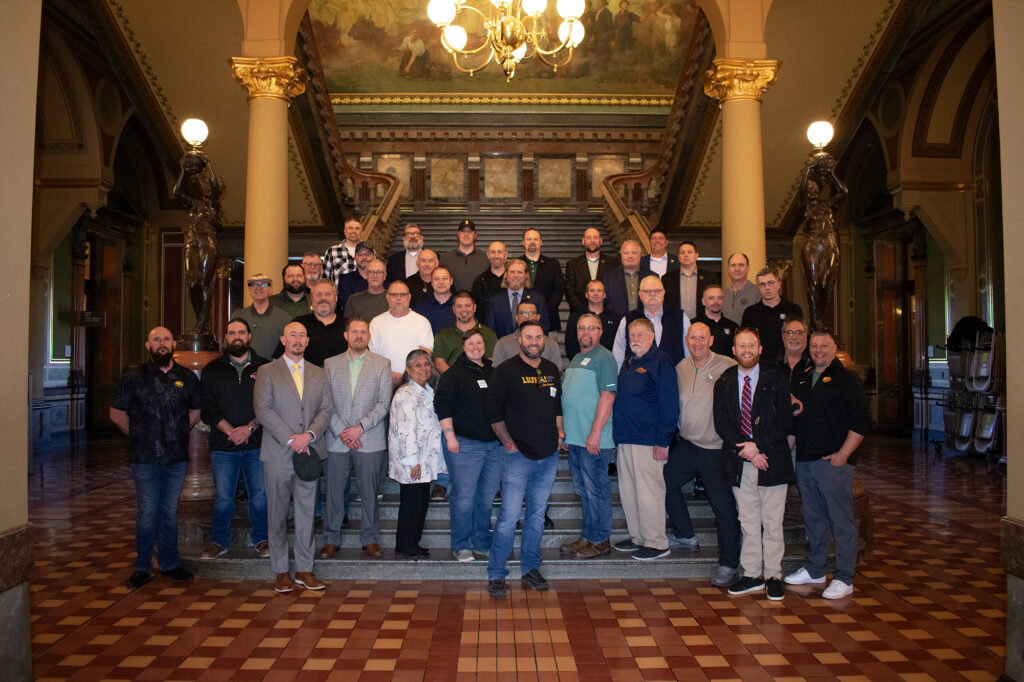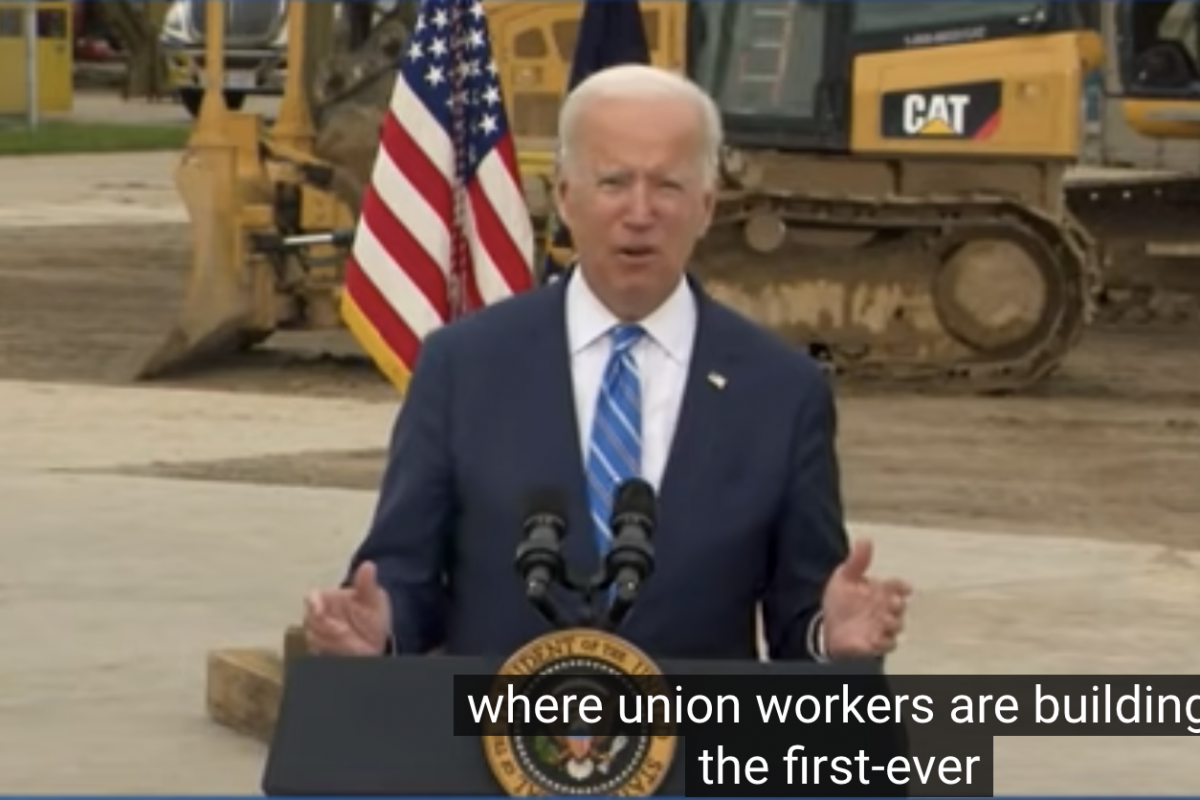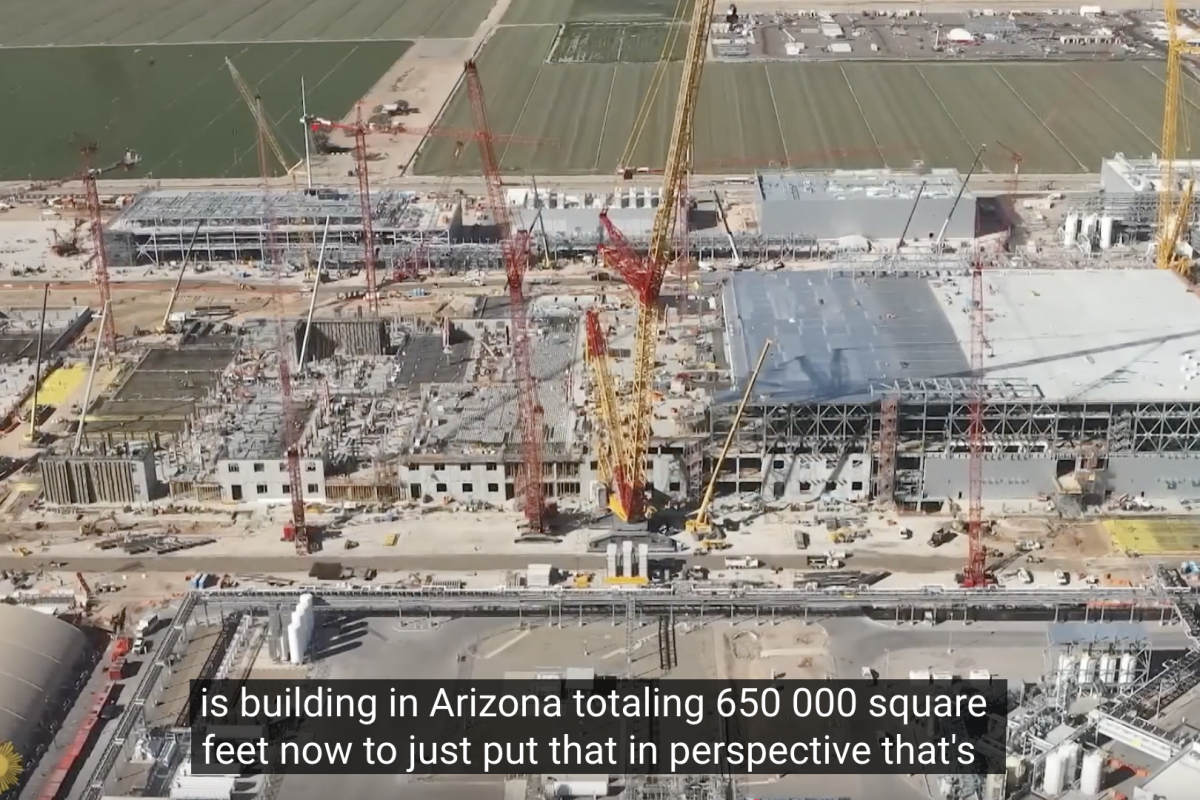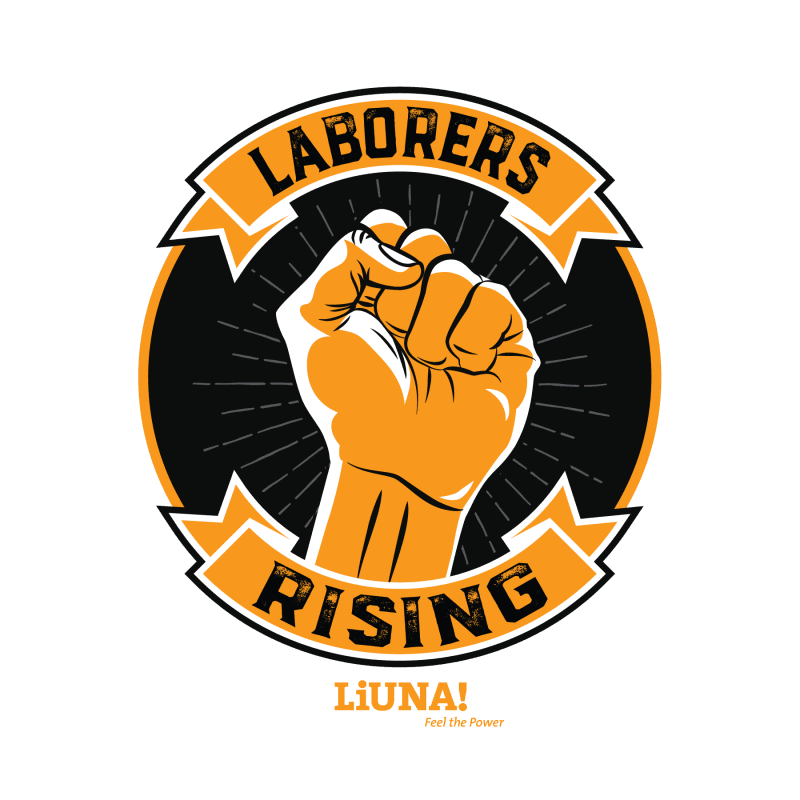Federal
Federal
Home » Building Awareness » Federal
Building Awareness
Politics & Issues at the Federal Level
Richie and Dylan are representing Laborers 177 in Washington, D.C., standing up for Davis-Bacon and prevailing wage protections. Proud they are making sure our voices are heard loud and clear on Capitol Hill!
We know that federal policies shape the landscape for unions and working families across the nation. From funding infrastructure projects to protecting the right to organize, decisions made in Washington, D.C., impact our jobs, benefits, and future. That’s why it’s crucial for union members to stay informed and engaged.
Key Federal Issues Impacting Laborers
Infrastructure Investment
Federal investments in roads, bridges, and public works, like those under the Bipartisan Infrastructure Law, create thousands of good-paying union jobs and improve our communities. These projects ensure steady work for skilled laborers and reinforce the value of union labor in building America.Protecting Union Rights
Laws like the National Labor Relations Act (NLRA) safeguard the right to organize, bargain collectively, and hold employers accountable for unfair practices. The PRO Act seeks to strengthen these rights further, ensuring that workers can stand together without fear of retaliation.Retirement Security
The Inflation Reduction Act secured critical funding to stabilize multi-employer pension plans, protecting the hard-earned retirements of union members. This is a significant victory for laborers who rely on these pensions after decades of service.Fair Wages and Jobsite Safety
Federal prevailing wage laws, like those in the Davis-Bacon Act, ensure fair pay for workers on federally funded projects. Efforts to expand these protections mean better wages and safer conditions for union laborers nationwide.
Why It Matters
Federal policies don’t just affect the economy—they affect our lives. Whether it’s job opportunities, retirement benefits, or workplace protections, what happens at the federal level has a direct impact on you and your family. Staying informed ensures we’re ready to advocate for policies that support union jobs and strengthen worker rights.
The voice of laborers matters. Learn more about federal issues, stay engaged with your union, and help protect the future of union work. Together, we build stronger communities and a brighter future.
Cut Through the Noise
with Brent Booker
“In the days, weeks, and months ahead, news will come at us fast and furious. As your union, we remain laser-focused on what matters most: the issues that directly impact your day-to-day lives—your paycheck, your health, and your safety at work.
To cut through the noise, I will be addressing you directly in plain language on the topics that genuinely affect our bottom line. Yesterday, I released the first of these statements regarding President Trump’s decision to terminate Jennifer Abruzzo, General Counsel of the National Labor Relations Board (NLRB), and Board Member Gwynne Wilcox.”
Catch the most recent Rick Smith Show featuring our very own General President, Brent Booker? They discussed topics like collective bargaining rights, Canadian tariffs, the new Secretary of Labor & #LIUNA’s maternity leave policy.
Just days ago, Donald Trump signed an Executive Order that basically cut off all federal funding for most of our safety net programs, instantly creating funding issues all over America. This is chaos by design, and it will be followed by massive cuts to many of the most vital domestic programs in American history. We discuss this and more with guests Randi Weingarten of The American Federation of Teachers and Brent Booker, President of LIUNA.
Brent Booker, General President of the Laborers’ International Union of North America (LIUNA), joined the America’s Work Force Union Podcast to discuss the union’s growth, innovative programs and future outlook.
🚨BREAKING UPDATE🚨
— @GPBrentBooker (@GPBrentBooker) March 29, 2025
The Trump Administration signed an EO stripping Federal Enpkoyees of their collective bargaining rights.
This isn’t just an attack on federal workers—it’s an attack on all of us.
We will not back down.
We will not be silenced.
The labor movement will RISE… pic.twitter.com/9GveDix72o
The latest administration actions are shaping the future of labor—and I’m here to break down exactly what that means for YOU!
— @GPBrentBooker (@GPBrentBooker) March 10, 2025
Stay informed. Stay emPOWERed.
WATCH NOW 👇 pic.twitter.com/PRjqqtclQq
ICYMI… Catch up on #LIUNA General President Booker’s testimony before the Senate Environment & Public Works Committee. He called out how frivolous litigation & regulatory “red tape” delays are destroying GOOD #BlueCollar American jobs and jeopardizing our path to #energy… pic.twitter.com/K385YgEfEj
— LIUNA (@LIUNA) February 21, 2025
The U.S. Postal Service is not for sale! #LIUNA & NPMHU won’t back down. The #USPS belongs to the people, NOT corporations!
— @GPBrentBooker (@GPBrentBooker) February 21, 2025
Mail handlers keep America running—we won’t back down. #Solidarity pic.twitter.com/MHfgzffv2g
Our General President, @GPBrentBooker, delivered powerful oral testimony today before the Senate Environment and Public Works Committee, pushing for real permitting reform that puts workers first.
— LIUNA (@LIUNA) February 19, 2025
He also gives an important update on what’s happening at the #NLRB—because the… pic.twitter.com/KzE3L7vg8G
🚨 BREAKING: @POTUS terminates key @NLRB leaders, leaving workers without a voice!
— @GPBrentBooker (@GPBrentBooker) January 28, 2025
The NLRB is vital for protecting #workersrights. These firings halt critical cases and silence workers. We call on the Administration to appoint leaders who prioritize a Workers First Agenda over… pic.twitter.com/BEzaCmUSzk
In the first 100 days,
the new administration has taken steps that directly affect union members and the work we do:
- Ended project labor agreements (PLAs) on Department of Defense jobs
- Weakened jobsite safety enforcement through OSHA and NIOSH cuts
- Canceled collective bargaining rights for nearly a million federal employees
- Revoked support for apprenticeships and training programs
- Paused funding for the Infrastructure Investment and Jobs Act (IIJA) and the Inflation Reduction Act (IRA)
- Canceled offshore wind and energy projects taking away jobs from thousands of union tradesmen and women
The PRO Act
The PRO Act (Protecting the Right to Organize Act) is a proposed law designed to make it easier for workers to join unions and negotiate for better pay, benefits, and working conditions. It’s about giving workers a fair shot when they stand together.
Why the PRO Act Is Important for Unions
-
Protects Your Right to Organize
Stops employers from interfering when workers want to form a union, including cracking down on intimidation or retaliation. -
Strengthens Collective Bargaining
Ensures workers have a stronger voice at the negotiating table to fight for better wages, benefits, and job security. -
Closes Loopholes
Prevents companies from using tricks, like misclassifying workers as independent contractors, to avoid paying fair wages or benefits. -
Holds Employers Accountable
Imposes penalties on employers who break the rules or violate workers' rights.
______
Passing the PRO Act would mean more power in the hands of workers and unions, ensuring a level playing field for all. It’s about building a better future where union jobs are respected and protected.
Department of Labor Appointment
- Lori Chavez-DeRemer (Oregon-Former US Rep).
- Co-sponsored PRO Act (Protect the Right to Organize Act).
Faces confirmation by US Senate in 2025.

What to Know
The National Labor Relations Board (NLRB) is an independent federal agency that protects the rights of workers to organize, form unions, and bargain collectively with their employers. Established in 1935 as part of the National Labor Relations Act (NLRA), the NLRB plays a critical role in ensuring fair labor practices and protecting workers’ rights.
What Does the NLRB Do?
- Protects Workers’ Rights: The NLRB ensures that workers can join together to improve their wages, benefits, and working conditions without fear of retaliation or interference from employers.
- Investigates Unfair Labor Practices: The NLRB investigates claims of illegal actions by employers or unions, such as firing workers for union activity or failing to bargain in good faith.
- Oversees Union Elections: The agency supervises and certifies union elections to ensure that the process is free, fair, and democratic.
- Enforces Labor Laws: The NLRB enforces federal labor laws to hold employers and unions accountable when they violate workers’ rights.
For workers, the NLRB is a vital resource in the fight for better jobs, stronger protections, and a voice in the workplace. Whether you’re considering joining a union or need support in addressing workplace issues, the NLRB is here to defend your rights.
Board Composition:
- Five Members: Appointed by the President and confirmed by the Senate, each serving staggered five-year terms. The Board primarily functions as a quasi-judicial body, making decisions on cases based on formal records in administrative proceedings.
General Counsel:
- Role: Acts as the chief prosecutor, overseeing the investigation and prosecution of unfair labor practice cases and supervising the NLRB’s field offices.
Current Leadership (as of February 2025):
- Chairman: Marvin E. Kaplan, a Republican, appointed by President Donald Trump.
- Member: David M. Prouty, a Democrat, appointed by President Joe Biden.
- Vacancies: Three seats are currently vacant. Notably, President Trump dismissed Democratic member Gwynne Wilcox in January 2025, a move that has led to legal challenges and left the Board without a quorum, effectively stalling numerous cases.
The National Labor Relations Act (NLRA), passed in 1935, is a cornerstone of U.S. labor law that protects workers’ rights to organize and bargain collectively through unions. It also aims to prevent unfair labor practices by employers. Here’s how it relates to unions:
Key Provisions of the NLRA:
- Right to Organize: Workers have the legal right to form, join, or assist labor unions without interference or retaliation from their employer.
- Collective Bargaining: The NLRA guarantees employees the right to negotiate wages, hours, and working conditions collectively with their employer.
- Prohibition of Unfair Practices: The act makes it illegal for employers to engage in practices like firing workers for union activities or refusing to negotiate with a certified union.
- National Labor Relations Board (NLRB): The NLRA established the NLRB to oversee and enforce labor laws, resolve disputes, and ensure fair elections when workers vote on union representation.
Importance for Unions:
The NLRA provides unions with the legal foundation to represent workers effectively. It empowers unions to negotiate for better wages, benefits, and working conditions and protects workers’ rights to stand together without fear of reprisal.
The Davis-Bacon Act is a federal law enacted in 1931. It requires that contractors and subcontractors working on federally funded or assisted construction projects pay their laborers and mechanics no less than the locally prevailing wages and benefits for similar work in the area.
However, many states have their own “mini-Davis-Bacon” laws, often referred to as prevailing wage laws, which apply similar requirements to state-funded construction projects. Iowa, for example, does not have a state-level prevailing wage law, which means the Davis-Bacon Act applies only to federally funded projects within the state.
When working in Iowa and the project is federally funded, Davis-Bacon wage requirements will apply. For state-funded projects, there’s no equivalent law mandating prevailing wages unless specified by a particular contract or agreement.
Project 2025 proposes several measures that could negatively impact unions and jobs in Iowa:
Union Restrictions: The plan suggests banning public sector unions and making it more difficult for private sector workers to organize, potentially diminishing union influence and worker protections.
Reduced Worker Protections: It aims to roll back federal rules that ensure workplace safety, which could lead to more hazardous working conditions for employees.
Overtime Pay Changes: The initiative includes proposals to weaken overtime protections, potentially resulting in reduced compensation for workers putting in extra hours.
Building Awareness
Federal Impact

Inflation Reduction Act
A win for unions by supporting workers and unions thru driving investments in jobs and fair labor practices.
- Securing Union Pensions: It provided critical funding to stabilize multi-employer pension plans, ensuring millions of workers and retirees receive their hard-earned benefits.
- Supporting Clean Energy Jobs: It incentivizes projects with union labor through prevailing wage requirements and apprenticeship programs.
- Strengthening Collective Bargaining: By promoting labor standards in federal contracts and incentivized projects, it boosts unionized workforce opportunities.

Infrastructure Investment & Jobs Act
Delivers transformative investments in America’s workforce, with tangible benefits for union members.
- Union Job Creation: Projects funded by the Act are estimated to create over 1 million union jobs over the next decade, spanning construction, transportation, and energy sectors.
- Prevailing Wage Protections: Guarantees that federal infrastructure projects use prevailing wage standards, ensuring fair pay for union workers.
- Strengthened Apprenticeships: Includes funding to expand Registered Apprenticeship Programs, providing union members with the skills to thrive in high-demand industries.

Chips & Science Act
Boosts domestic manufacturing and innovation, creating opportunities that directly benefit union workers.
- Union Jobs in Semiconductor Manufacturing: Investments to build new chip plants ensure thousands of high-quality, union-friendly construction jobs.
- Prevailing Wage Standards: Federally funded projects under the Act must meet prevailing wage requirements, supporting fair pay for union workers.
- Apprenticeship Opportunities: Encourages the use of union apprenticeship programs to train workers for advanced manufacturing roles.


